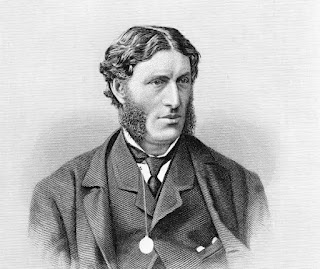Discuss Matthew Arnold as an Elegiac Poet
In ancient Greece elegy used to denote a kind of poetry dealing with the subject matter of change and loss. As a humanist. Arnold was very much concerned about the gaining of the supremacy of science, theology, and natural philosophy over arts, poetry, and moral philosophy as academic subjects in the Victorian Period. This passionate sense of loss and the concern for rapid shifting in the taste of his people brought into his poetry a meditative and an elegiac tone. Arnold’s acute perception over the gradually dying beauty of age under the constant pressure of materialism rendered him permanently melancholy. “Nothing in Arnold’s verse,” says Hugh Walker “is more arresting than its elegiac element.”
Most of Arnold’s poems are efflorescence of melancholy strain. As a poet, he gives vent to the essentially modern theme of the separation and loneliness of the individual. Born in and crushed by an age of scepticism, sophistry, questions, hesitations, sick fatigue and languid doubt, a sensitive thinker like him was destined to be meditative and elegiac. Naturally, his poetry becomes, as Hugh Walker says, a spontaneous expression of “his native melancholy, of the Virgilian cry over the mournfulness of mortal destiny.”
“The Scholar Gipsy” (1853) is about the story of an Oxford scholar who left his academic career and civilized life in order to learn magic tricks from the gipsies. Arnold read the story in Joseph Glanvill’s The Vanity of Dogmatizing (1661) and fondly imagines that the gypsy scholar is still alive and can be glimpsed in the Berkshire and Oxfordshire countryside, “waiting for the spark from Heaven to fall”. The scholar gipsy, having renounced a modern man’s life, is “Free from the sick fatigue, the languid doubt” and is, therefore, not subject to ageing and death. Arnold describes the strange disease of modern life/With its sick hurry, its divided aims” and implores the scholar gipsy to avoid all who suffer from it, in case he too should be infected and die. The elegiac mood is born in this poem the poet’s intense regret over the condition of modern civilization and his nostalgic desire to go back to the past.
“There dwells a loved one,
But cruel is she!
She left lonely forever
The kings of the sea.”
Arnold’s deep sense of human isolation is the theme of his Marguerite poems. Though love poems, these do not sing the triumphs of love but become dirges “Isolation: To Marguerite”, an elegy of love, poignantly expresses the poet’s sense of isolation. In speaking about his unreciprocated love for Marguerite, he transforms his suffering into that of the entire humanity. In To, Marguerite Continued the poet shifts from personal experience to universal experience. He declares with pontifical (pompous/self-important) solemnity that love is a mere illusion, and earthly love is doomed to futility. In dealing with the theme of isolation and melancholy, here he appears to be a forerunner of the Existentialists and Absurdists. He realizes that separated by the sea of life, “we mortal millions live alone”.
Thus it is evident that the most attractive thing about Arnold’s poetry is its persistent elegiac quality Arnold is at his best in his mood of lament and melancholy. Such a mood imparts to his poetry “its inner Romanticism” (Cazamian).
